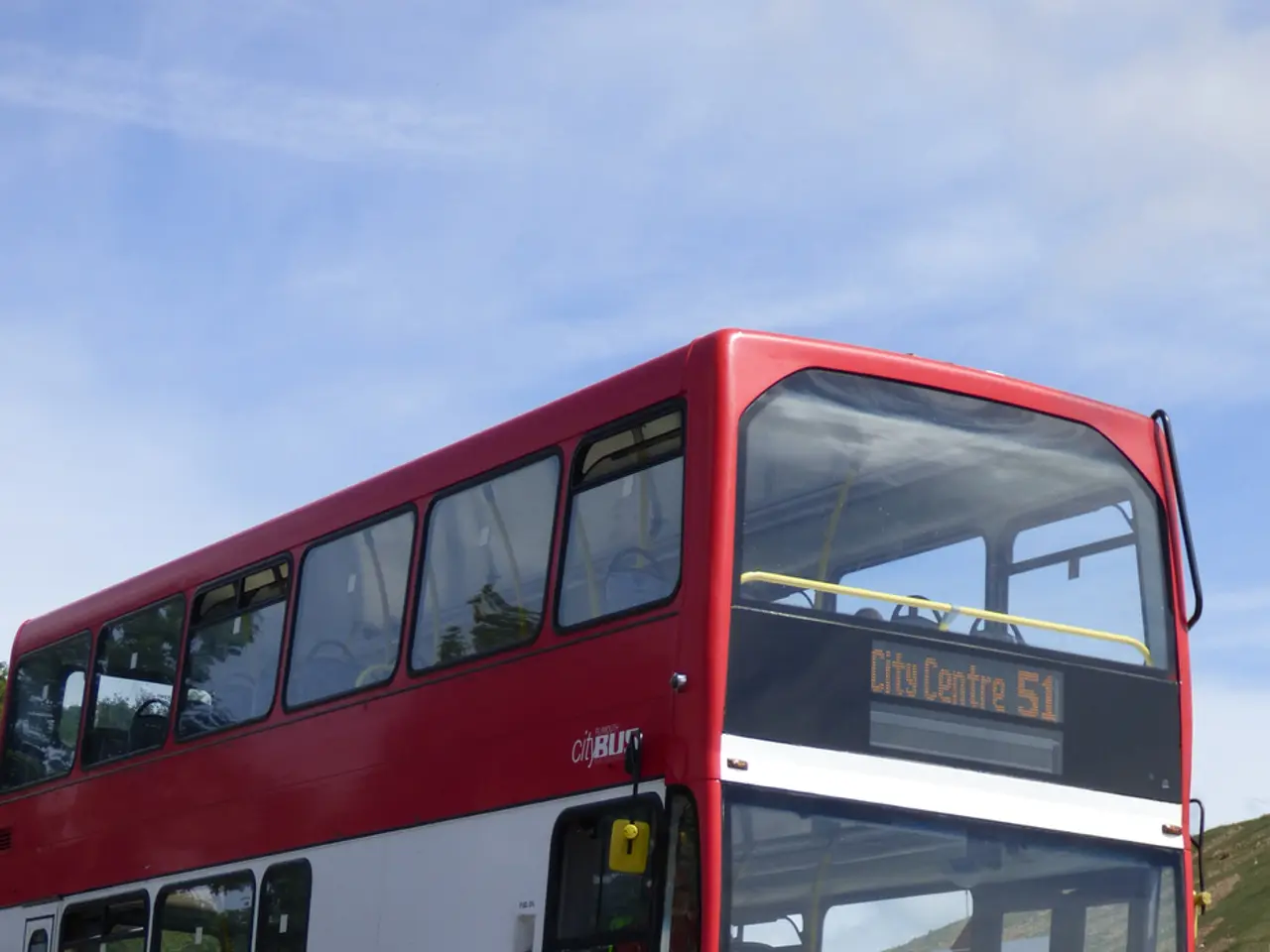Reducing Rail Fees: The Ministry of Transport's Proposed Relief for Deutsche Bahn
Government Transport Department seeks to mitigate escalating railroad congestion.
Share Tweet Forward Email Print Copy Link
The German Ministry of Transport, under the CDU leadership, is looking to ease the steep rise in costs for using the rail network, specifically for Deutsche Bahn (DB). Leaked plans suggest amendments to the Railway Regulatory Act.
The amendment aims to persuade the federal government to demand a more reasonable return on equity from DB's infrastructure arm, DB InfraGO. This lowered return, expected to be around two percent, should lead to a less dramatic hike in rail tolls—the fees charged for using the rail network.
Currently, October's return on equity is around six percent, which, in turn, justifies an increase in rail tolls. The tolls function as a key factor determining the rail industry's competitiveness against the trucking sector. Reducing the return on equity should, therefore, stabilize costs and promote fair competition.
The Association of Freight Railways, a competitor to Deutsche Bahn, applauds this development as an essential step. They argue that the amendment could significantly reduce rail toll increases this year, potentially limiting them to a 15% rise compared to the 35% increase without the amendment. This adjustment acknowledges that state infrastructure should serve the public, not be profit-driven.
Sources: ntv.de, RTS
Insights
The proposed amendment targets a reduction in rail fees for DB's infrastructure arm, DB Netz AG, to alleviate cost burdens on rail network usage and encourage growth in rail traffic. This move reflects a broader policy aim to reinforce Germany's transport infrastructure, balancing funding needs with affordability and competition.
The method of implementing rail fee reductions and the exact percentage reductions aren't detailed in available information. However, they align with ongoing legislative adjustments in the rail sector. If further legislative texts become available, they will provide precise details on the rail toll reductions under the amended Railway Regulatory Act.
The Ministry of Transport's proposed amendment to the Railway Regulatory Act suggests a decrease in Deutsche Bahn's (DB) return on equity, moving from the current six percent to around two percent. This adjustment may lead to a more affordable public-transit system through reduced rail fees, thereby encouraging vocational training and community participation by making transportation more accessible and affordable for individuals seeking vocational training in the industry.




